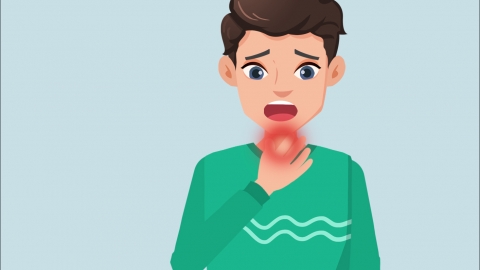What causes bleeding from the throat?
Generally speaking, the throat refers to the pharynx. Pharyngeal bleeding may be caused by severe coughing, excessive voice use, posterior nasal bleeding with retrograde flow, chronic pharyngitis, tuberculosis, and other conditions. If experiencing any discomfort, timely medical consultation is recommended. Detailed explanations are as follows:

1. Severe Coughing
During intense coughing, the pharyngeal muscles contract strongly, which may cause a sudden increase in capillary pressure within the pharyngeal mucosa, leading to vascular rupture and bleeding. This situation is commonly seen during severe coughing caused by respiratory infections, such as colds or bronchitis. It is recommended to actively treat the underlying condition causing the cough to reduce its intensity and duration.
2. Excessive Voice Use
Extended periods of loud talking, singing, or shouting can cause pharyngeal mucosal congestion and dryness, increasing capillary permeability beneath the mucosa and making the vessels fragile and prone to rupture. Additionally, excessive voice use causes frequent friction of the vocal cords and pharyngeal tissues, which can damage the mucosa and blood vessels, resulting in bleeding. It is recommended to manage voice usage appropriately and avoid prolonged, high-intensity vocal strain.
3. Posterior Nasal Bleeding with Retrograde Flow
The nasal cavity communicates with the pharynx. When there is posterior nasal bleeding, blood may flow backward into the pharynx, creating the illusion of pharyngeal bleeding. Nasal bleeding might result from nasal mucosal injury due to factors such as nasal dryness or habitual nose picking. It is important to maintain nasal moisture, using normal saline nasal drops or sprays as needed.
4. Chronic Pharyngitis
Chronic pharyngitis often results from repeated episodes of acute pharyngitis or long-term habits such as smoking and alcohol consumption. The pharynx remains in a state of chronic inflammation, with submucosal tissue proliferation and thickening, and surface capillary dilation and congestion. Under inflammatory stimulation or minor external forces, such as coughing or throat clearing, the capillaries may rupture and bleed easily, potentially accompanied by symptoms like nausea and dry heaving. Treatment may include medications such as Yinhuang Throat Tablets, Pharyngitis Tablets, or Pudilan Xiaoyan Oral Liquid, under a physician's guidance.
5. Tuberculosis
Tuberculosis is caused by infection of the lungs with Mycobacterium tuberculosis, primarily transmitted through droplets. Individuals with weakened immune systems are more susceptible to infection and disease onset. It may lead to pulmonary lesions such as inflammation, cavitation, and caseous necrosis, with damage and rupture of pulmonary blood vessels causing hemoptysis. Blood may be expelled through the trachea and present as pharyngeal bleeding when coughed up. It may also be accompanied by symptoms such as low-grade fever and night sweats. Treatment should follow medical advice and may include medications such as isoniazid tablets, rifampicin capsules, and ethambutol hydrochloride tablets.
Maintaining healthy lifestyle habits, regular sleep patterns, avoiding staying up late, and enhancing immunity are important. Additionally, maintaining oral and nasal hygiene through regular cleaning can help reduce the risk of infection.







